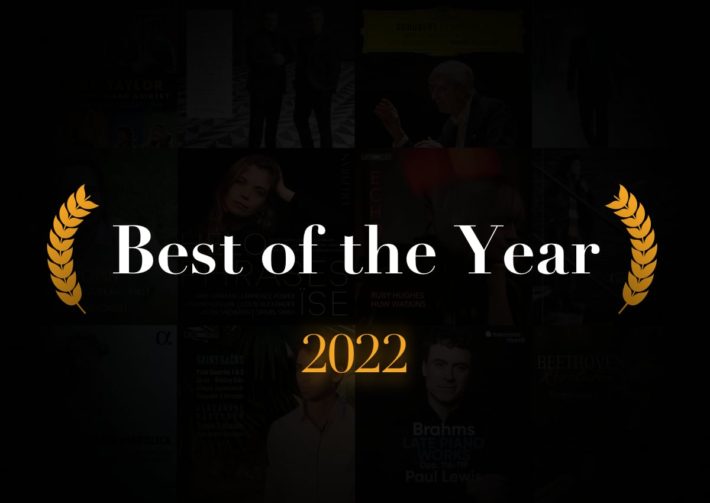We go over a lot of classical music albums every week, so when 2022 comes to an end it’s time for members of The Classic Review staff to pick their favorite albums of the year. And so, a moment before we start providing you with fresh new content for 2023, here are the albums that our staff members most liked in 2022.
Schubert – Symphonies No. 8 & 9 – Gewandhausorchester, Herbert Blomstedt
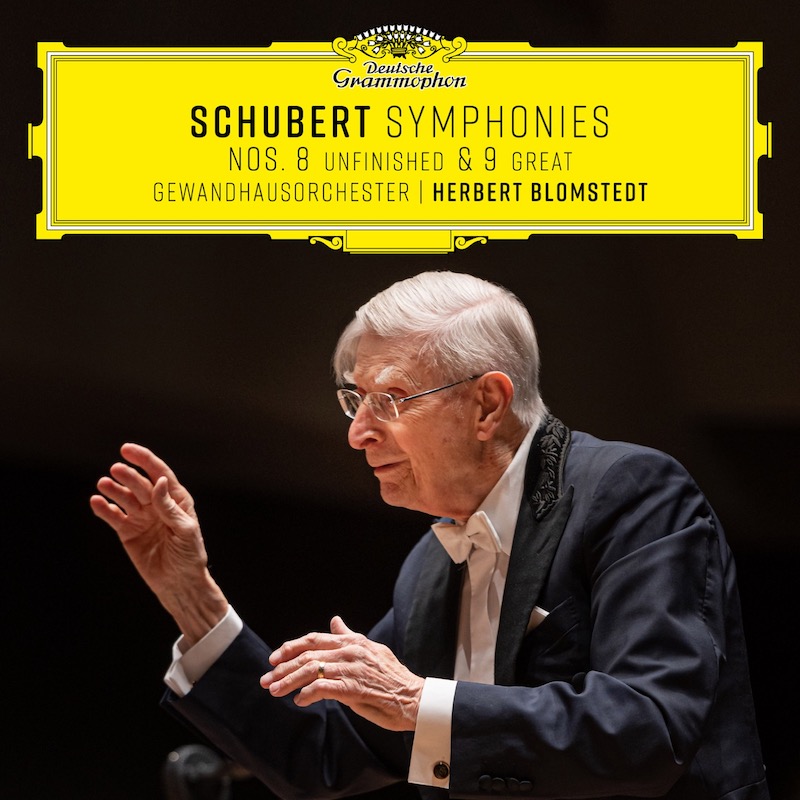
Blomstedt has recorded these symphonies multiple times, but never better than here. He has this music in his bones, and these performances unfold with an organic inevitability that makes it hard to imagine the music could go any other way. The Gewandhausorchester offer wonderfully supple playing that vividly captures the mercurial shifts in emotion and mood. The orchestra has a burnished warmth and weight perfectly suited to this music. Orchestral texture is always transparent, and phrases are carefully molded and lovingly shaped.
The ninth is played with every repeat, but with such nuanced and characterful playing it never feels too long. There are period instrument and historically informed recordings that make dubious claims that they finally allow us to hear the ‘real Schubert.’ But Blomstedt’s readings, the result of a lifetime of studying, teaching, and performing these two symphonies, are surely that, and more. — David McConnell
Samuel Coleridge-Taylor – Chamber Works – Kaleidoscope Chamber Collective
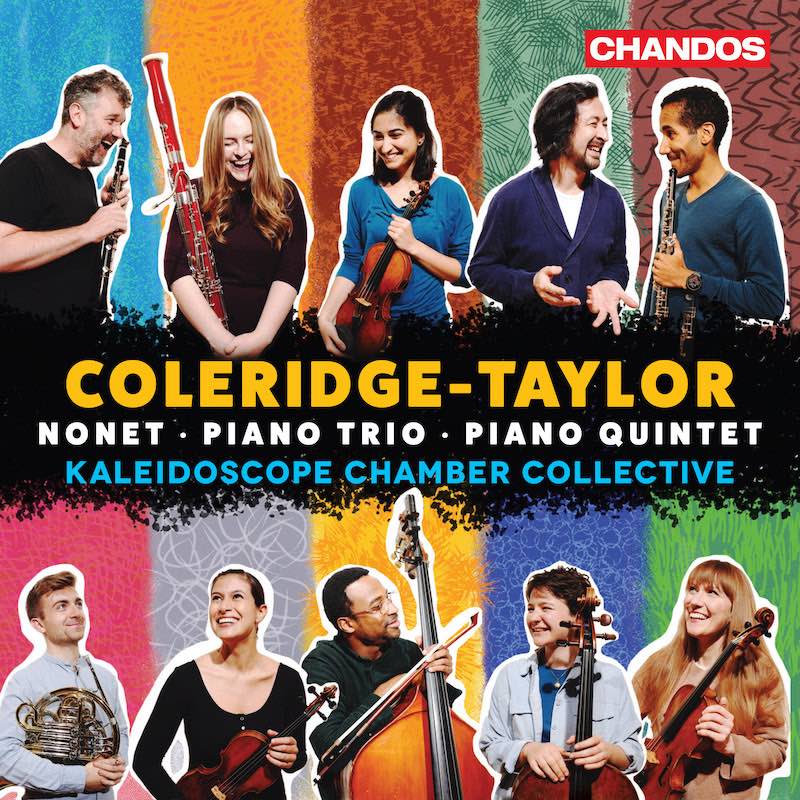
With so many works recorded multiple times by established performers, it’s wonderful to be acquainted with an unknown composer in general, and particularly with his seldom-played works. This album includes Samuel Coleridge-Taylor’s early chamber works that show tremendous vigor and originality. The players of the Kaleidoscope Chamber Collective raise to the occasion with a performance that projects a wholehearted dedication to this music. As with their previous releases on Chandos, one can’t wait for additional albums from this group, whether well-known or less familiar. — Tania Greenberg, Tal Agam
Saint-Saëns – Piano Concertos No. 1 & 2 – Alexandre Kantorow
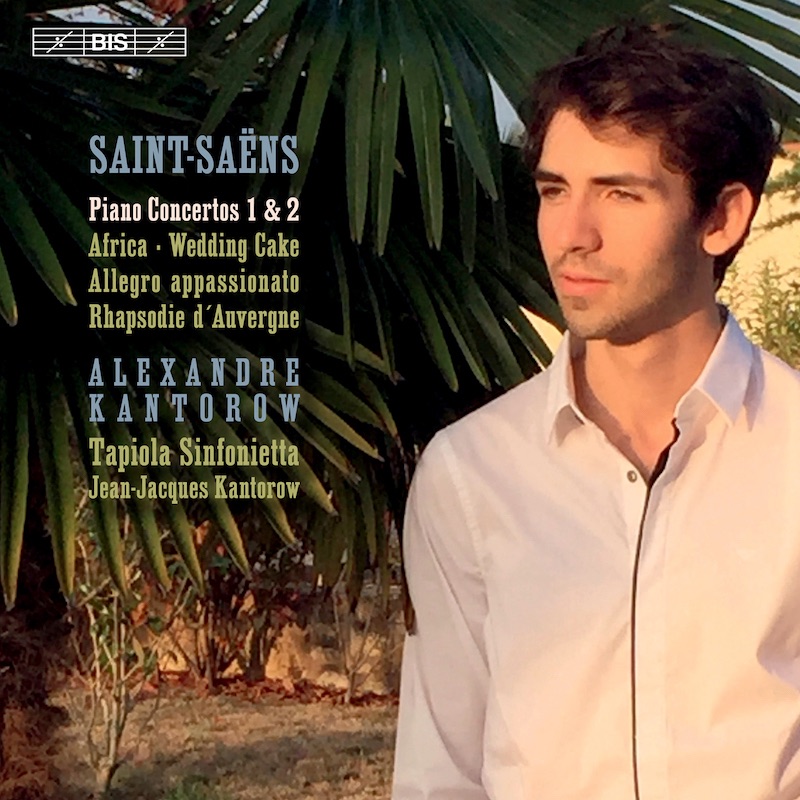
A performance of the Saint-Saëns piano concerto (especially the No. 2 G minor) is not necessarily anything new. An excellent one, however, is memorable. Alexandre Kantorow’s (with his father leading the Tapiola Sinfonietta) is just that: a blend of excitement, finesse, and seamless collaboration. The delightful Allegro Scherzando swept me off my feet with its buoyant dance rhythms and sunny character; the Presto left a lasting impression not only for the pianist’s virtuosic prowess (and the scorching speed) but also for a perfect combination of scintillating, and at times, furious energy.
The first concerto might seem for some paler in character to the vibrant G minor, but the Kantorows’ interpretation certainly does it justice. From the optimistic heroism of the opening movement to the exquisite elegance of the second, listeners are sure to be treated to the fine aspects of Saint-Saëns’ writing. — Azusa Ueno
Insieme – Jonas Kaufmann, Ludovic Tézier
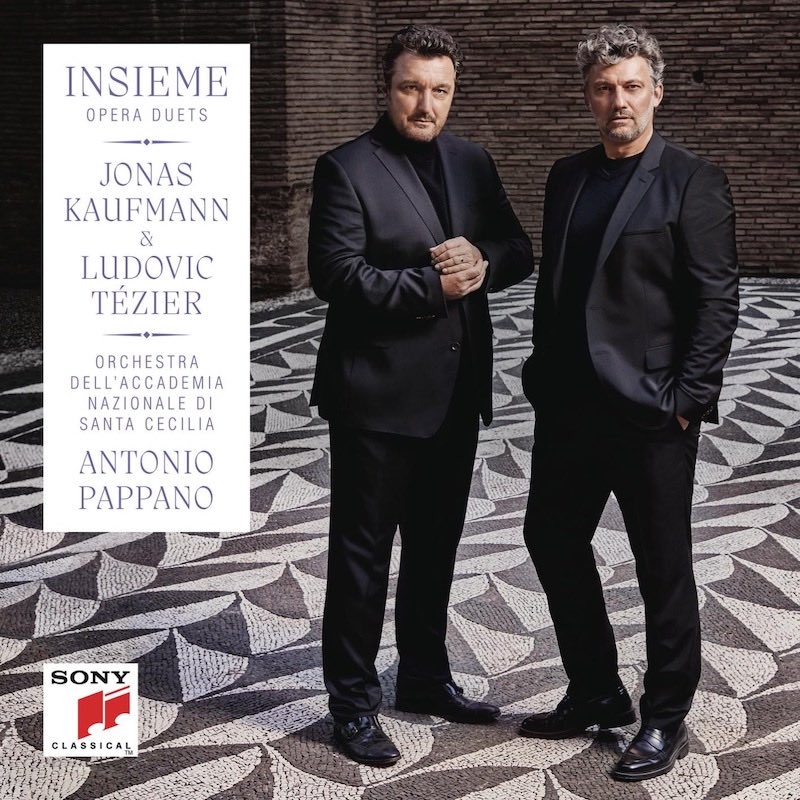
In the streaming-era of classical music recordings, opera arias albums can sound patchy and incohesive, but this program is far from it. Presenting duets from operas by Ponchielli, Verdi and Puccini, the album is a delightful listen from first note to last, with the few of the best talents currently active, Jonas Kaufmann, Ludovic Tézier and to no less extent, the Orchestra dell’Accademia Nazionale di Santa Cecilia under Antonio Pappano. You don’t need to be an opera aficionado to enthusiastically enjoy this album, superbly recorded by the Sony team. — Tal Agam
Beethoven – Symphonies 6-9 – Le Concert des Nations, Jordi Savall
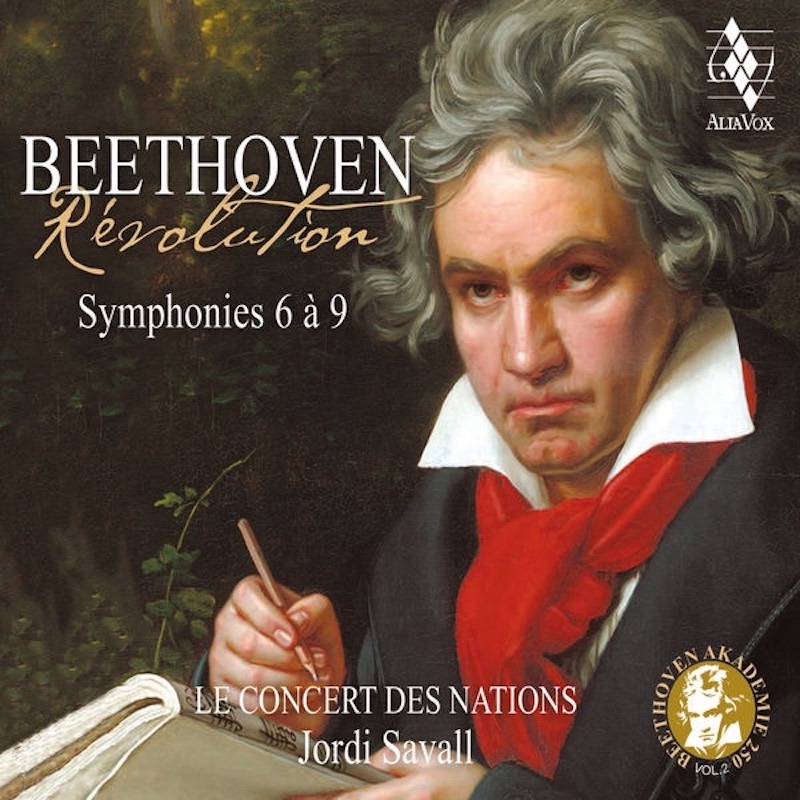
2020 saw a deluge of Beethoven recordings to celebrate the composer’s 250th anniversary. One of those releases featured these same performers in thrilling renditions of the first five symphonies. Covid interrupted the cycle’s completion for roughly a year, but the wait was worth it. Savall and his forces show us how and why these works were so revolutionary.
Le Concert des Nations plays with tremendous flair and ardor, its pungent instrumental colors more bracing than their English counterparts. Woodwinds display vim and vigor in faster music, and lovely lyricism in slow movements, while bass has plenty of gruff power at climaxes. The lithe and agile strings, closely recorded, have a thrilling immediacy that communicates their wholehearted commitment.
The ninth, so often the Achilles heel of period instrument cycles, fully expresses Beethoven’s idealistic beliefs with burning conviction. No one cycle can capture every aspect of this music – but this cycle comes closer than most. — David McConnell
“Echo” – Ruby Hughes, Huw Watkins
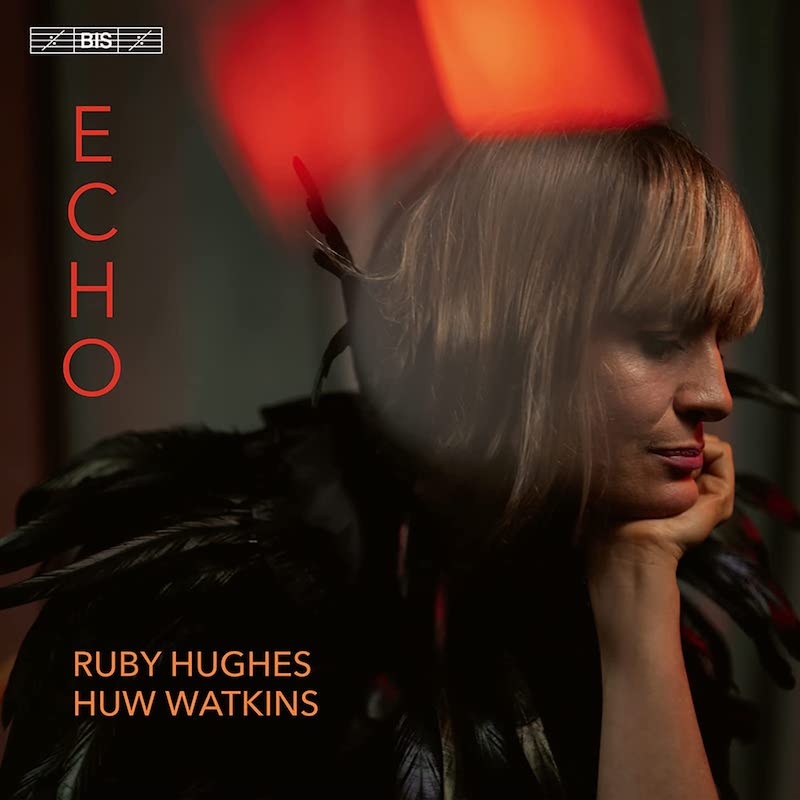
Hugues’ 2020 album, Clytemnestra, made my top 3 back in 2020 and there’s a good reason that she’s made it again this year. Like the previous album, Echo reflects a thoughtful combination of old and new, established and adventurous but takes a very different angle in the exploration of the human psyche.
Hughes has a level of artistry in singing that I find rare: she’s indeed fortunate to have a naturally lovely timbre but there is also the unparalleled level of vocal control and level of conscientiousness she delivers to each pattern or phrase, no matter how short. The result is her ability to connect to the listener on an unusually deep and honest emotional level. She and composer-pianist Huw Watkins are at their best on the album’s centerpiece, Watkins’ own song cycle: we’re taken on a riveting journey through anguish, weariness, desolation, and catharsis. — Azusa Ueno
Bach – Goldberg Variations – Klára Würtz
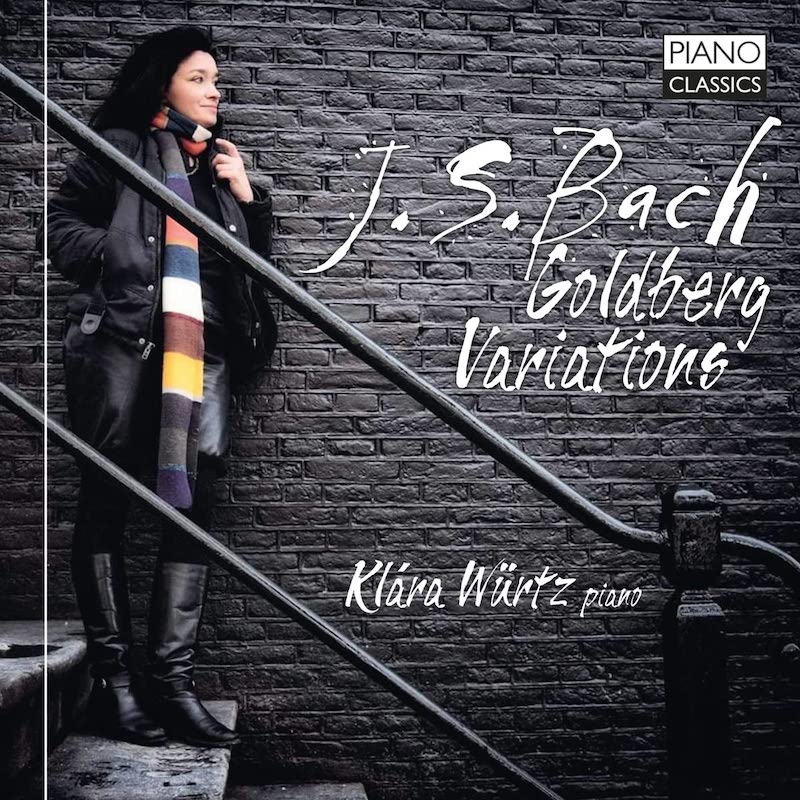
When writing the 3-part guide to the best recordings of the Goldberg Variations, I was deliberating between many versions that illuminated the work with fresh ideas and the ones that exemplified the sometimes elusive essence of the piece. Very few did both. Out of the many versions emerged what, I thought, was a straightforward and all around solid version, that of Ekaterina Dershavina, which made it as one of the top 3 recommendations.
Writing my original review of Klára Würtz’s new version, I was constantly reminded of that recording; A direct, no-fuss interpretation that holds all the variations together as one whole, revealing its complexities in what appears as a “simple” rendition. Many listening sessions later, the performance keeps revealing itself (and the performer) in new lights, especially the sophisticated voicing of the contrapunct between two hands. The tempo is relatively steady so that the listener moves from one variation to the next almost seamlessly, acknowledging each variation by itself but kept reminded that this is a complete cycle with multifarious relations of musical ideas. This is one Goldbergs for the books. — Tal Agam
Mendelssohn – Piano Concertos – Lars Vogt, Orchestre de Chambre de Paris
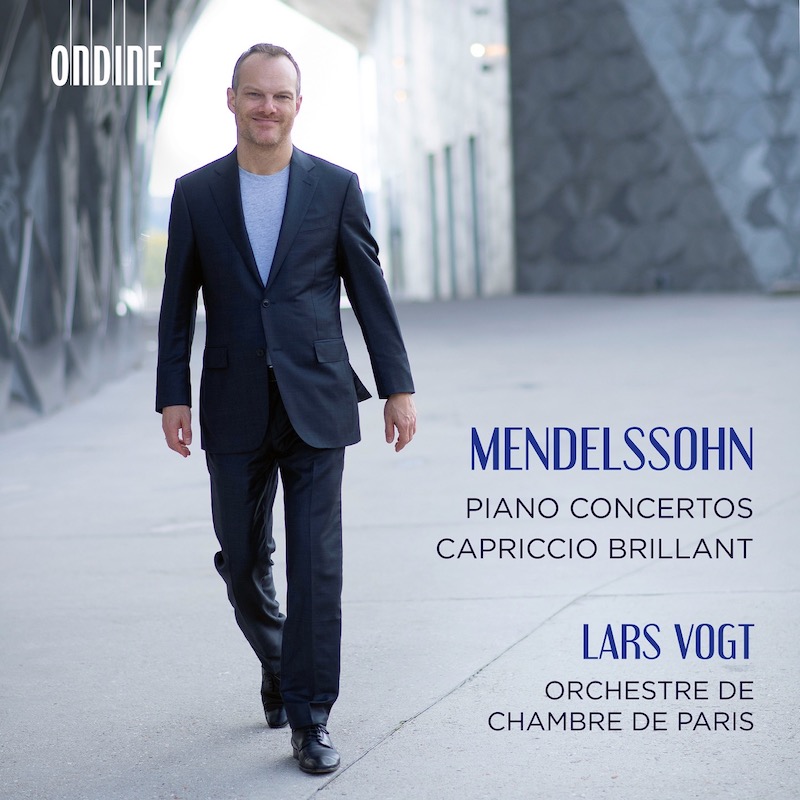
My March 2022 review of this album ended with the following: “There is a full color picture in the booklet that shows a jovial orchestra with its new artistic director, and that connection is conveyed in the music making heard here. I look forward to hearing more from this team soon.” Only a few months later Vogt died from esophageal cancer at the age of 51.
Having listened to several performances by Vogt over the years, I am always impressed by how his technical brilliance was never merely for display. Instead, it was used to seek out and more fully express the emotional meaning of the music (clearly heard in this Mendelssohn, especially the slow movements). His conducting (and many chamber performances) reflected his passionate belief that music is a collaborative art. These Mendelssohn performances are special in part because his conducting is not about control, but the cooperative connection between himself and the orchestra. This is music making we need, and we must be grateful for the recorded legacy Vogt has left behind. — David McConnell
“Phrases” – Héloïse Werner
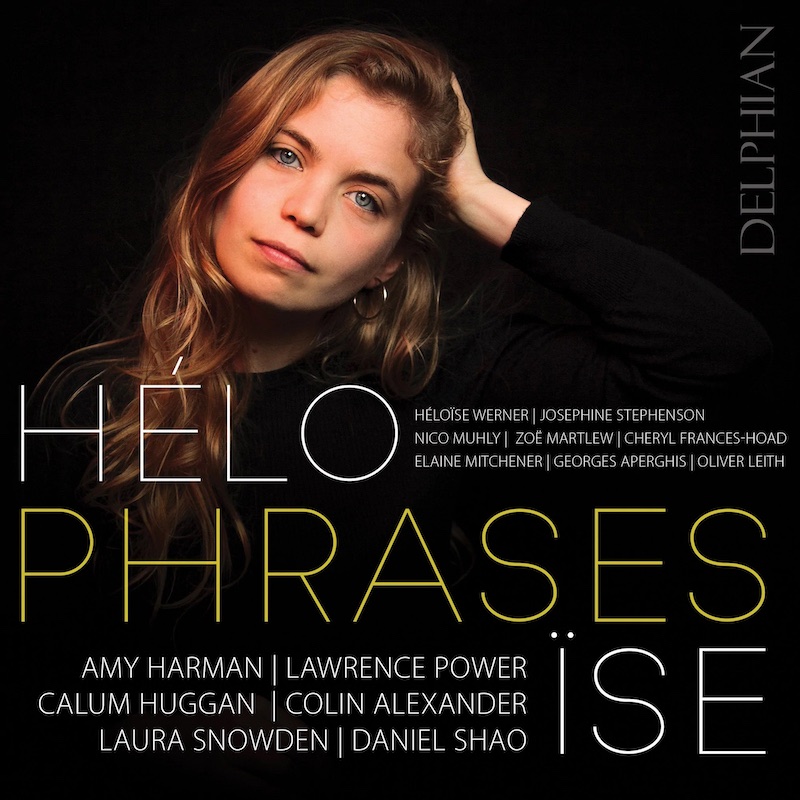
Héloïse Werner’s debut album was one of the most original and creative this year in terms of programming, but it also managed to impress with the sheer virtuosity of the performance. Using the human voice as an instrument, Werner looks at human language from many angles, in contemporary works by 8 composers (including herself). The quality of performance and the fascinating concept (eloquently explain on the album’s booklet), makes this one of the highest achievements of the year. — Tania Greenberg, Tal Agam
Chopin – Complete Mazurkas, Vol. 1 – Peter Jablonski
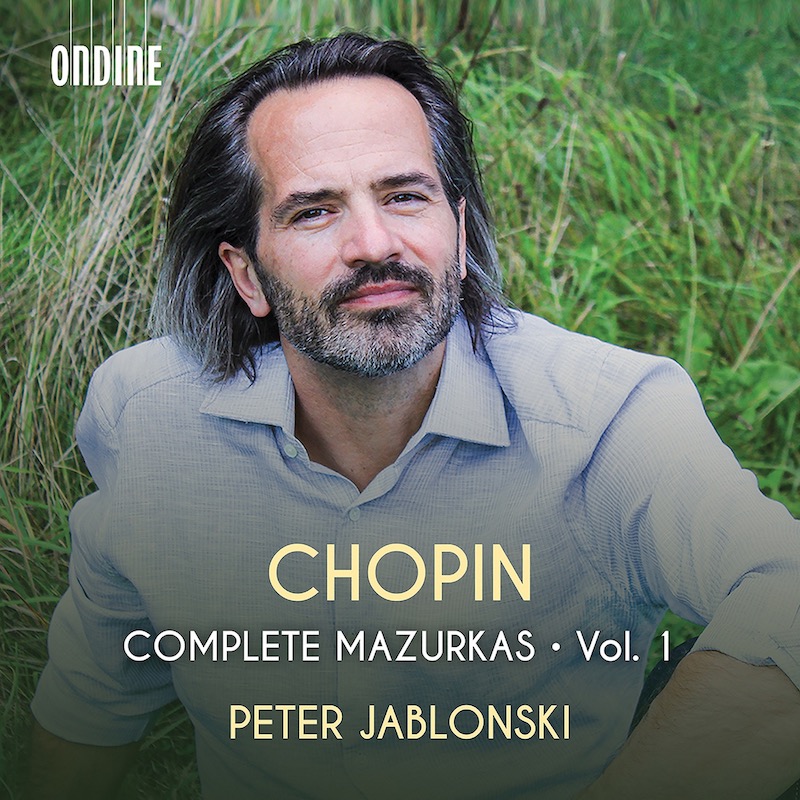
Jablonski’s first volume of the Chopin Mazurkas makes my Top 3 for 2022 with a fine display of artistry. These miniature gems can be fleeting with their length (or we should say lack thereof), so it’s very much up to the pianist to establish the character early on. Jablonski manages to do this successfully, I would say, for all of the Mazurkas presented–no easy feat!
What’s especially nice about his playing is how it’s equally convincing in divergent contexts. His bel canto lines sing even when they’re nestled in the left-hand, the baselines are not overlooked but instead given due rhythmic and harmonic significance, and of course, the quintessential lilt of the dance is always thoughtfully preserved. Plenty of character abounds, from the thoughtful melancholy of the Op. 17 A minor to the bold extroversion of the Op. 30 C minor. One can only wait impatiently for what the new year and the second volume brings. — Azusa Ueno
Brahms – Late Piano Works – Paul Lewis
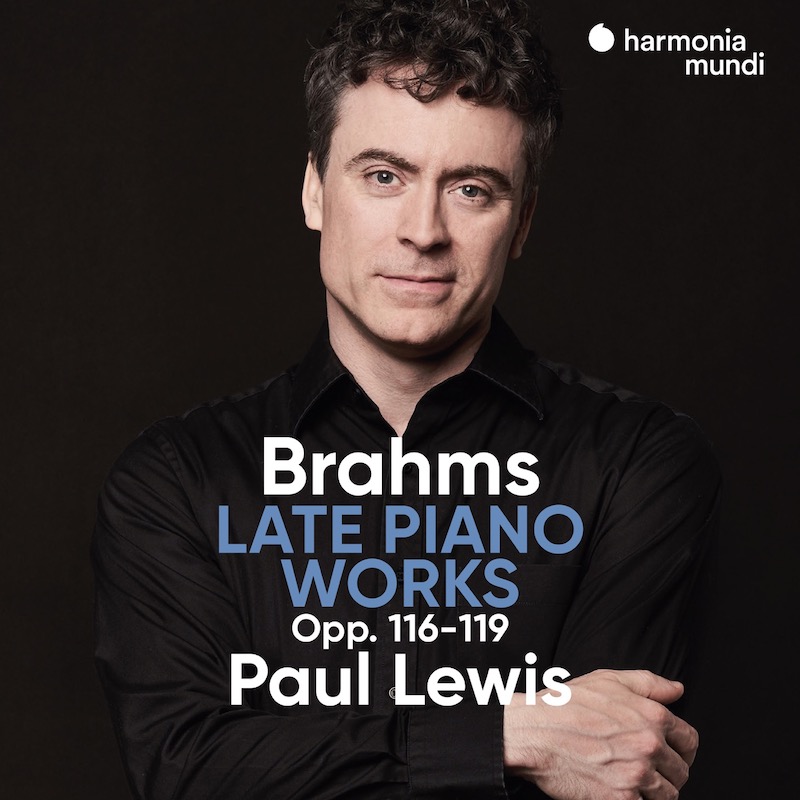
Paul Lewis continues to concentrate in recording the core piano repertoire with works by Haydn, Beethoven, Schubert and here Brahms, with the complete set of the late Op. 116-119. It’s almost easy to take this performance for granted, as Lewis always puts the music first, follows the score closely and never convey extreme interpretational decisions of speed, phrasing, or dynamics. The multilayered performance reveals itself with repeated listening; The sophisticated pedal work and chord voicing, the unique character of each piece and how it relates (or contrast) with the surrounding works, and the humane approach to these romantic masterpieces. Harmonia Mundi’s recording fully captures all of Lewis’ subtleties and especially fine instrument. — Tal Agam
“Angelica Diabolica” – Giulia Semenzato
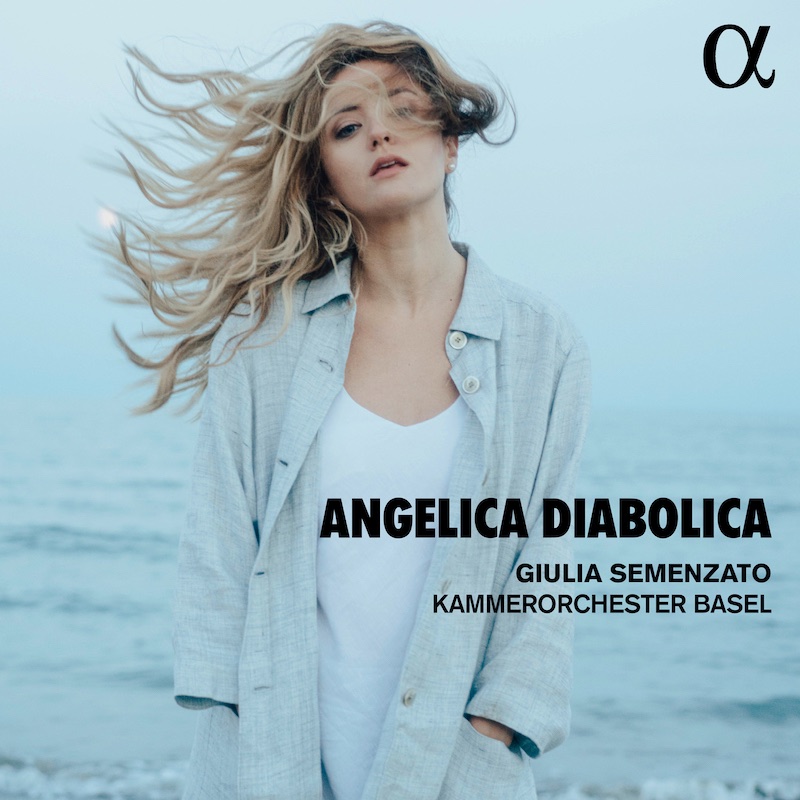
Giulia Semenzato’s previous albums were collaborative efforts, so this makes for a tremendous and hugely successful debut. Semenzato sings mostly dramatic Baroque opera arias with infectious enthusiasm, but is no-less convincing in softer moments. And so from the first two tracks of the album we are treated with two emotional worlds from Luigi Rossi’s Il Palazzo Incantato. The programming continuous this contrast in character throughout, well accompanied by the Kammerorchester Basel. We can’t wait for what Semenzato will bring us next. — Tania Greenberg, Tal Agam


